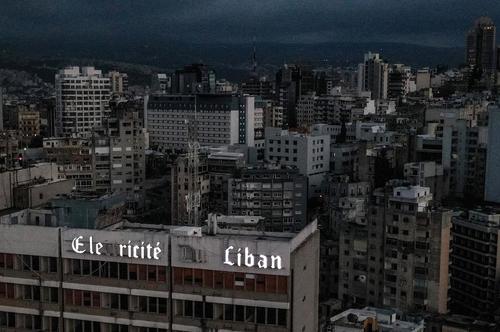Beirut Goes Dark As Economic Tailspin Sees Dire Fuel & Electricity Shortages
Starting Wednesday night Lebanon’s Central Bank announced that fuel subsidies have been halted, already at a moment where there’s been scarcity of both gas and electricity. Fuel prices are expected to at least quadruple, leading to a national scramble for fuel, exacerbating rolling blackouts akin to what’s become the tragic “norm” of recent years in neighboring war-torn Syrian.
International reports are underscoring that the enduring economic crisis beginning in 2019 which sparked a year of mass protests and a currency crisis, and subsequent failed attempts to stave off total collapse amid a drastic “shock” change in government, are now coming to a head, sending already impoverished areas of the country of nearly seven million spiraling into steadily worsened conditions.
Darkness falls #beirut pic.twitter.com/kpL14RfIsm
— Quentin Sommerville (@sommervilletv) August 12, 2021
Regional director of humanitarian aid NGO Crisis Group, Heiko Wimmen, was cited in CNN as saying “This is obviously going to ripple through the whole economy.” He emphasized that seemingly overnight basic staples that support daily life have now become a “luxury”.
“For a large part of the population, electricity will become a luxury. Driving your car will become a luxury, too. Transportation will become a luxury,” Wimmen added.
The cutting of subsidies was expected, but still a “shock” nonetheless. Like everything else in Lebanon energy has been severely mismanaged, after already the government suspended lines of credit to fuel importers.
So the sudden liberalization of fuel prices meant whole villages, towns, and parts of cities were plunged into darkness overnight as not even generators could keep the lights on:
The ripple effects of the decision came before the decision itself. Petrol stations across the country shuttered. Highways became clogged by long lines that snaked out of the few petrol pumps that remained open. Many bakeries have closed. Factories, including one that supplies the majority of Lebanon’s intravenous lines to hospitals, closed. They blamed diesel exhaustion.
Several towns and neighborhoods, already suffering from the effects of long outages from state electricity, lost access to diesel, which is needed to power backup generators, and were plunged into darkness.
This guy on my street in Beirut is so angry about the power cut he wants to light the generator guy’s shop on fire—using a bottle of precious gasoline! which ends up spilled on the street as a fight break out. #Lebanon pic.twitter.com/ndndNz0I3a
— Rebecca Collard (@rebeccacollard) August 11, 2021
Over past months there were increasing scenes of astoundingly long lines at gas stations, with fights and disputes over supplies becoming almost routine.
How is life in Lebanon?
🔸️No electricity
🔸️No generators
🔸️No gasoline
🔸️No Water because no electricity
🔸️We buy water from private sellers at proces that go over the roof while the water is polluted
🔸️no medicine because cartels are hoarding them for more profit— Marwa Osman || د. مروة عثمان (@Marwa__Osman) August 11, 2021
And it appears rolling blackouts have even hit Beirut International Airport, which is a major hub for the entire region…
Beirut airport now.
No fuel. No electricity.The country is crumbling.
More and more every day.pic.twitter.com/EOw6iCMYoc#Lebanon— Sara Assaf (@SaraAssaf) August 12, 2021
Even food and medicines are now running scarce, as The New York Times detailed this week: “The supply of medicines has also become unreliable. At a pharmacy, a line stretched, where anxious shoppers sought medicines that are now scarce, such as pain killers & blood pressure meds.”
By all accounts things look to get worse before they get better – and compounding all this remains US and EU sanctions on both Lebanon and Syria.
Tyler Durden
Thu, 08/12/2021 – 23:45
via ZeroHedge News https://ift.tt/3spFCLL Tyler Durden
